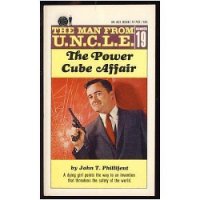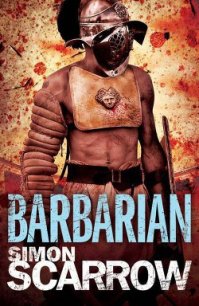Power of the Sword - Smith Wilbur (электронная книга TXT) 📗
He made a poultice for Manfred's shoulder that when applied, hot and evil-smelling, proved highly efficacious and within ten days Manfred was fit to travel again.
The same sangoma provided a herbal dye for Manfred's skin which darkened it to the exact hue of one of the northern tribes. The eyes, Manfred's yellow eyes, were not a serious handicap. Amongst the black mine workers who had worked out their Wenela contract and were returning home, there were certain symbols which confirmed their status as sophisticated men of the world, tin trunks to hold the treasures they had acquired, the pink post office savings books filled with the little numbers of their accumulated wealth, the silver metal mine helmets which they were allowed to retain and which would be worn with pride everywhere from the peaks of Basutoland to the equatorial forests, and lastly a pair of sunglasses.
Manfred's travel papers were issued by one of Hendrick's Buffaloes, a clerk in the pay office of ERPM, and they were totally authentic. He wore his dark sunglasses when he boarded the Wenela train and his skin was dyed the same hue as the black workers who surrounded him closely. All these men were Hendrick's Buffaloes, and they kept him protected in their midst.
He found it strange but reassuring that the few white officials that he encountered on the long slow journey back to South West Africa, seldom looked at him directly. Because he was black, their gaze seemed to slide by his face without touching it.
Manfred and Hendrick left the train at Okahandja and with a group of other workers climbed onto the bus for the final hot dusty miles to Hendrick's kraal. Two days later they set out again, this time on foot, heading north and east into the burning wilderness.
There had been good rains during the previous season and they found water in many of the pans in the southern Kavango and it was two weeks before they saw the kopjes humped like a caravan of camels out of the blue heat haze along the desert horizon.
Manfred realized as they tramped towards the hills how alien he was in this desert. Hendrick and his father had belonged here, but since childhood Manfred had lived in towns and cities. He would never have been able to find his way back without Hendrick's guidance; indeed he would not have survived more than a few days in this harsh and unforgiving land without the big Ovambo.
The kopje that Hendrick led Manfred towards seemed identical to all the others. It was only when they scaled the steep granite side and stood upon the summit, that the memories came crowding back. Perhaps they had been deliberately suppressed, but now they emerged again in stark detail. Manfred could almost see his father's features ravaged by fever and smell again the stench of gangrene from his rotting flesh. He remembered with fresh agony the harsh words of rejection with which his father had driven him to safety, but he closed his mind to the ache of them.
Unerringly he went to the crack that split the granite dome and knelt over it, but his heart sank when he peered down and could distinguish nothing in the deep shadows that contrasted with the sunlight and its reflection from the rock around him.
,so they have gone, these famous diamonds, Hendrick chuckled cynically when he saw Manfred's dismay. Perhaps the jackals have eaten them. Manfred ignored him and from his pack brought out a roll of fishing-line. He tied the lead sinker and the stout treble fish hook to the end and lowered it into the crack, Patiently he worked, jigging the hook along the depth of the crack while Hendrick squatted in the small strip of shade under the summit boulders and watched him without offering encouragement.
The hook snagged something deep in the crack, and cautiously Manfred applied pressure on the line. It held and he took a twist around his wrist and pulled upwards with gradually increasing strength.
Something gave, and then the hook pulled free. He drew the line in hand over hand. One point of the treble hook had opened under the strain, but there was a shred of rotted canvas still attached to the barb.
He bent the tine of the hook back into shape and lowered it once again into the crack. He plumbed the depths, working each inch from side to side and up and down. Another half hour of work and he felt the hook snag again.
This time the weight stayed on it, and he eased the line in, an inch at a time. He heard something scraping on the rough granite, then slowly a shapeless lumpy bundle came into view deep down. He lifted it slowly, holding his breath as it came up the last few feet. Then as he swung it clear, the canvas of the old rucksack burst open and a cascade of glittering white stones spilled onto the granite top around him.
They divided the diamonds into two equal piles as they had agreed, and drew lots for the first choice. Hendrick won and made his selection. Manfred poured his share into the empty tobacco pouch he had brought for the purpose.
You told the truth, little Manie, Hendrick admitted. I was wrong to doubt you. The following evening they reached the river and slept side by side beside the fire. in the morning they rolled their blankets and faced each other.
Goodbye, Hennie. Perhaps the road will bring us together again. 'I have told you, little Manie, that the gods of the wilderness have linked us together. We will meet again, that I am certain of. I look forward to that day. The gods alone will decide whether we meet again as father and son, as brothers, or as deadly enemies, Hendrick said and slung his pack over his shoulder. Without looking back he walked away into the southern desert.
Manfred watched him out of sight, then he turned and followed the bank of the river into the north-west. That evening he came upon a village of the river people. Two of the young men in their dugout canoe ferried him across to the Portuguese side. Three weeks later Manfred reached Luanda, capital of the Portuguese colony, and rang the bell on the wrought-iron gates of the German consulate.
He waited in Luanda three weeks for orders from the German Abwehr in Berlin, and slowly it dawned upon him that the delay was deliberate.
He had failed in the task they had set him, and in Nazi Germany failure was unforgivable.
He sold one of the smallest diamonds from his hoard at a fraction of its real value and waited out his punishment.
Each morning he called at the German consulate and the military attached turned him away with barely concealed contempt.
No orders yet, Herr De La Rey. You must be patient. Manfred spent most of his days in one of the water-front cafes and his nights in his cheap lodgings, endlessly going over each detail of his failure, or thinking about Uncle Tromp and Roelf in the concentration camp, or about Heidi and the child in Berlin.
His orders came at last. He was issued a German diplomatic passport and he sailed on a Portuguese freighter as far as the Canary islands. From there he flew on a civilian Junkers aircraft with Spanish markings to Lisbon.
In Lisbon he encountered the same deliberate contempt.
He was dismissed casually to find his own lodgings and await those orders which seemed never to come. He wrote personal letters to Colonel Sigmund Boldt and to Heidi.
Although the consulate attache assured him that these had gone out in the diplomatic bag to Berlin, he received no reply.
He sold another small diamond and rented pleasant spacious; lodgings in an old building on the bank of the Tagus river, passing the long idle days in reading, study and writing.
He began work on two literary projects simultaneously, a political history of southern Africa and an autobiography, both for his own edification and with no intention of ever publishing. He learned Portuguese, taking lessons from a retired schoohnaster who lived in the same building. He kept up a rigorous physical training schedule, as though he were still boxing professionally, and he came to know all the secondhand book stores of the city where he purchased every law book he could find and read them in German, English and Portuguese. But still the time hung heavily on his hands and he chafed at his inability to take part in the conflict that raged around the globe.




